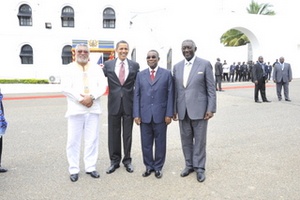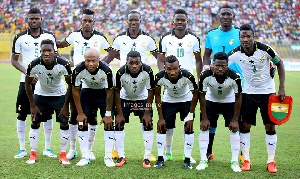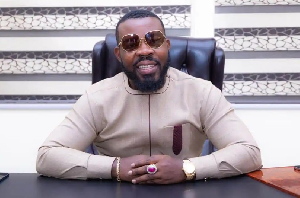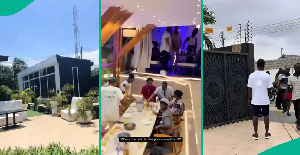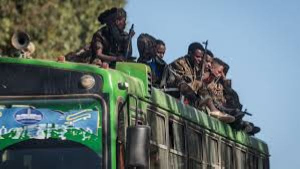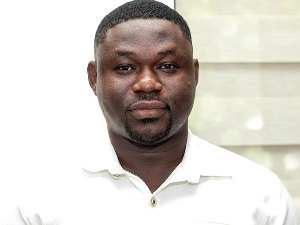The crowds have gone but euphoria remains after historic presidential visit
Ghana was slowly returning to normal yesterday after hosting President Barack Obama on his first visit to sub-Saharan Africa since becoming president. For many Ghanaians the visit was seen as the homecoming of a son of Africa to the land of his ancestors.
The hoardings lining Accra's roads were plastered with welcome messages, Barack Obama jingles filled the Ghanaian airwaves and market stalls touted souvenir t-shirts and calendars. In the weeks and days leading up to his arrival, there was hardly a television or radio station that did not hold discussions about the visit, focusing on its importance for Ghana and Africa. Enthusiastic listeners and viewers bombarded call-in programmes with their thoughts about the visit.
On Friday night huge crowds made their way to Kotoka International Airport in the hope of catching a glimpse of him on his arrival, whilst others gathered around television screens at home. There was pride that he had chosen for his inaugural African visit the country that started the struggle against colonialism and slavery.
The ceremonies themselves, though brief, were elaborate, and observers were impressed with Mr Obama's inspirational speech to Members of Parliament. "The President embraced me with no pride," said radio DJ and musician Blakk Rasta, who composed a song in support of Mr Obama during the presidential campaign. "He thanked me for my support and song, and said I am a true son of Africa. He took my contact details and said he would like to talk to me in private. For me, it was a dream come true."
The breakfast meeting at Osu Castle clearly overwhelmed the musician. "I feel humbled by the President's visit especially because I believe it was to thank Ghanaians for giving him the greatest support in Africa during his campaign," he said.
Abeiku Santana, Ghanaian broadcaster and member of Friends for Obama, said the president's inauguration has inspired his country. "From a distance, we were inspired by his ideals and vision even before he became President," he said.
Mr Santana said he was touched by the experience of meeting Mr Obama on his Friday visit to parliament: "Every word he spoke had a great impact on me. He is energetic, inspiring and delivered an excellent speech."
The President used the speech to tell Africans it was time to change their attitudes and regain lost values. Human rights lawyer Nana Oye Lithur said she found Mr Obama's speech to parliament inspiring and uplifting. She said she admired the fact that such a young African American was occupying such a position: "He came home to speak to his people like an African and they listened to him. I was not disappointed at all because he was able to articulate Ghana's current state and future in a better way than many Ghanaians have done."
Ms Lithur was particularly struck by the recognition of Patience Quaye, a Ghanaian policewoman unacknowledged by her own country for her work to stop human trafficking. "I left the place fulfilled because he espoused the ideals I stand for as a human rights advocate" she said.
Henrietta Koranteng, a university student, said she was extremely excited. "It was a historic event and I love Obama's youthfulness and his belief that anybody can achieve heights irrespective of race or age. Though I didn't meet him personally, I felt closer and happy seeing him on TV and knowing that he was in my country." The visit raised the prestige of Ghana and of Africa in general, she said.
Celebrations spilled out far beyond the capital. In the Central Region, Chiefs and crowds gathered hours ahead of Mr Obama's visit to the Cape Coast Castle amidst drumming and dancing, while in the northern regional capital, Tamale, the euphoria was no different. Abdul Munin Mohammed said Mr Obama's visit symbolised unity, "it means Ghana has established a lot in terms of democracy and we are all excited because Obama is a great person," he said.
Human trafficking: President praises crusaders
*During Barack Obama's address to the Ghanaian Parliament in Accra, he praised the "democratic" spirit of Ghanaians who have "chosen Constitutional rule over autocracy".
He cited two people in particular who he said encompassed the "democratic spirit that allows the energy of your people to break through."
He praised Aremeyaw Anas, a Ghanaian journalist with a paper called the New Crusading Guide, who worked undercover for eight months, risking his life, to expose a child trafficking ring. The evidence he amassed led to the prosecution of traffickers accused of sending Ghanaian girls to Europe for prostitution.
Obama also commended Patience Quaye, Deputy Superintendent of Ghana's police force, who was honoured by the US State Department in 2007. Her work in building a legal case against a man who abducted and sold his stepson in Nigeria led to the enforcement of a new law in Ghana to combat human trafficking, as well as the father's prosecution.

